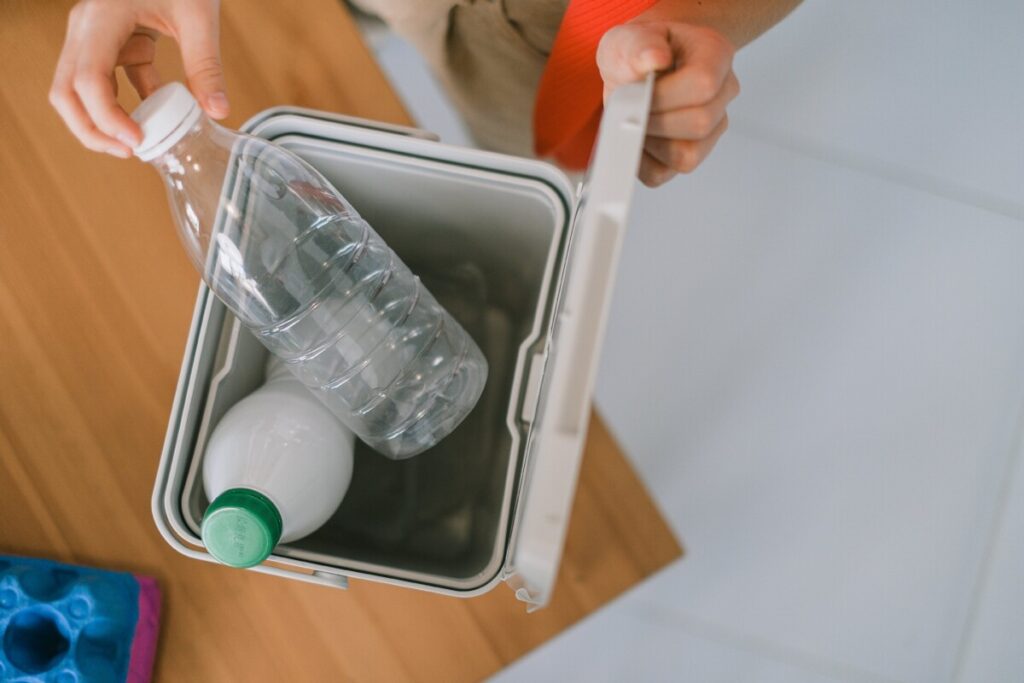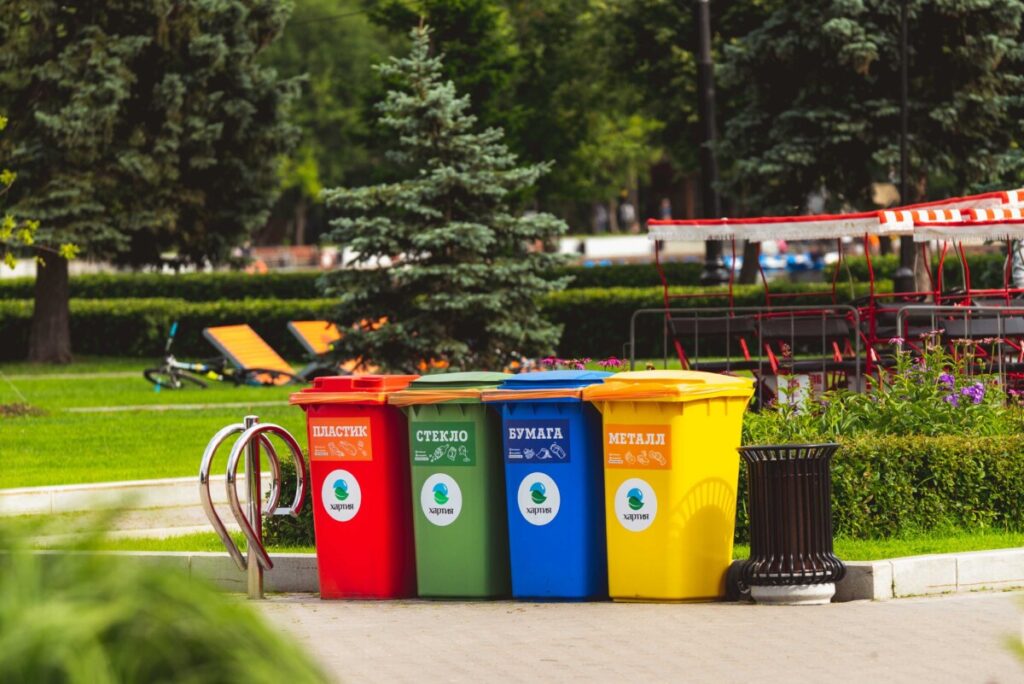Household Hazardous Waste: Methods for a Cleaner Environment

Household hazardous waste (HHW) is a term that encompasses a wide range of products commonly found in our homes. These products contain potentially harmful chemicals that can pose a threat to both human health and the environment if not disposed of properly. From cleaning supplies and pesticides to electronics and batteries, these items can have serious consequences if not managed responsibly.
In this comprehensive guide, we will explore what household hazardous waste is, why it’s important to dispose of it correctly, and the potential consequences of improper disposal. We will also provide practical tips and resources for identifying and safely disposing of HHW, as well as alternatives to traditional hazardous products. Join us in taking simple steps towards a cleaner, safer home and planet by properly managing household hazardous waste.
What is Household Hazardous Waste?
Household hazardous waste (HHW) refers to any products commonly found in our homes that contain potentially harmful chemicals. These include items such as cleaning supplies, pesticides, electronics, and batteries. These products can pose a threat to both human health and the environment if not disposed of properly.
These household items contain hazardous materials such as solvents, petroleum distillates, and other chemicals that can be harmful if not handled and disposed of correctly. When these products are thrown in the trash, they can end up in landfills and potentially contaminate the soil and water.
Proper disposal of HHW is crucial to protect human health and the environment. By understanding what HHW is and how to identify it in your home, you can take the necessary steps to dispose of it safely. The following section will guide you through identifying and handling HHW in your household.
Identifying HHW in Your Home
Household hazardous waste (HHW) can often be found in ordinary household items such as cleaning supplies, pesticides, and electronics. To properly manage HHW, it is important to first identify these products in your home.
What to look for:
Labels and symbols: Many products will have warning labels or symbols indicating their hazardous nature. Look for keywords such as “danger,” “warning,” or “caution.”
Specific products: Some common HHW items include bleach, paint, batteries, and pesticides. Check for these products in your home to determine if they need special disposal.
Hazardous materials: HHW products can contain harmful chemicals such as lead, mercury, or arsenic. Be aware of these materials and their potential effects.
How to store and handle HHW safely:
Keep HHW products in their original containers and never mix them together.
Store HHW in a cool, dry place away from children and pets.
Wear protective gear when handling HHW, such as gloves and a mask.
By knowing how to identify HHW in your home, you can take the necessary steps to handle and dispose of it safely. This will not only protect your health and the environment, but also prevent accidental exposure and contamination. Remember to always read labels and properly store HHW to ensure a safer home and planet.
Proper Disposal Methods
Proper disposal of household hazardous waste (HHW) is crucial for protecting both our health and the environment. Here are some recommended methods for disposing of HHW responsibly.
1. Special Collection Programs: Many local governments offer collection events or drop-off locations for HHW. These programs are designed to properly dispose of hazardous waste and are often free of charge. Check with your city or county for information on upcoming collection events or drop-off schedules.
2. Hazardous Waste Facilities: In some areas, there are hazardous waste facilities that accept HHW for proper disposal. These facilities are equipped to handle and dispose of hazardous waste safely. Check with your state’s Environmental Protection Agency (EPA) for a list of approved facilities in your area.
3. Recycling: Some HHW items, such as batteries, electronics, and pharmaceuticals, can be recycled instead of disposed of. Check with your local waste management or recycling agency for guidelines and locations for recycling these items.
Remember, improper disposal of HHW can have serious consequences, such as pollution and health hazards. Take the time to properly prepare HHW for disposal according to guidelines and regulations to protect yourself and the environment. Let’s work together towards a cleaner and safer home and planet.
Recycling HHW

Recycling HHW is an important step in reducing waste and protecting the environment. By recycling HHW, we can prevent these harmful chemicals from entering landfills and waterways. There are various resources available to properly recycle different types of HHW. For example, used batteries can be recycled at designated collection sites or through mail-back programs. Electronics can also be recycled at special drop-off events or through manufacturers’ take-back programs. When recycling HHW, it is important to follow any special procedures or regulations, such as removing batteries from electronics before recycling. Additionally, choosing safer and eco-friendly alternatives for HHW products can also help reduce waste and protect our natural resources. Join us in taking steps towards a more sustainable future by properly recycling HHW.
Alternative and Safer Products
Choosing alternative and safer products for everyday household tasks can have a positive impact on both our health and the environment. By opting for eco-friendly and non-toxic cleaning supplies, pest control, and personal care products, we can reduce our exposure to harmful chemicals and contribute to a more sustainable way of life.
Consider switching to products that are labeled as natural, organic, or biodegradable to minimize the use of hazardous materials in your home. Look for non-toxic ingredients such as vinegar, baking soda, and essential oils for cleaning, and opt for natural pest control methods like traps and barriers. You can also choose personal care products that are free of harmful chemicals like parabens and phthalates.
In addition to being safer for your health, these alternatives are also better for the environment as they do not contribute to pollution or harm wildlife. By making small changes in our daily routines, we can reduce our reliance on traditional HHW products and embrace a more sustainable lifestyle. Start incorporating these alternative products into your household today for a cleaner and healthier home.
Conclusion
In conclusion, proper management of household hazardous waste is crucial for the health of both individuals and the environment. From cleaning supplies and electronics to batteries and medicine, these items can pose a threat if not disposed of correctly. This comprehensive guide has provided information on what HHW is and how to identify it in your home, as well as the various disposal methods available.
We have also highlighted the benefits of recycling HHW and choosing safer alternatives for everyday products. By taking simple steps towards responsible HHW management, we can reduce pollution and promote a cleaner, safer home and planet for ourselves and future generations. Remember to always check with your local authorities for specific guidelines and resources in your area. Let’s work together to make a positive impact on our communities and tackle the issue of household hazardous waste.
https://fiscalfitnessflow.com/index.php/2024/01/29/the-impact-of-water-pollution-on-human-health/
https://www.epa.gov/
FAQ’s
Q: What is household hazardous waste?
A: Household hazardous waste refers to any discarded household products that contain chemicals or substances that can pose a risk to human health or the environment if not disposed of properly. This can include items like old batteries, fluorescent light bulbs, and unused paint.
Q: How should I dispose of household hazardous waste?
A: It’s important to properly dispose of household hazardous waste to protect the environment and human health. You can typically drop off these items at a household hazardous waste facility, where they will be handled and disposed of safely.
Q: What items are considered household hazardous waste?
A: Household hazardous waste includes items such as batteries, fluorescent bulbs, propane tanks, paint, and other household products that contain chemicals that are potentially harmful if not disposed of correctly.
Q: How can I find a household hazardous waste collection site in my county?
A: You can check with your local government or waste management facility to find a household hazardous waste collection site in your county. Many counties have specific collection days or permanent collection facilities for these items.
Q: What are the risks of improper disposal of household hazardous waste?
A: Improper disposal of household hazardous waste can lead to contamination of soil, water, and air, as well as pose health risks to humans and wildlife. It’s essential to dispose of these items responsibly to minimize these risks.








